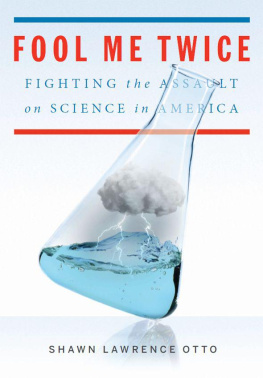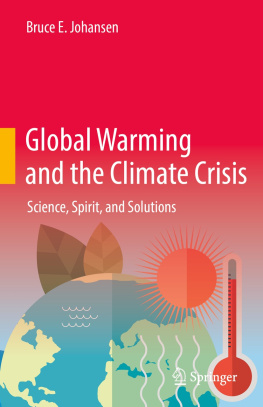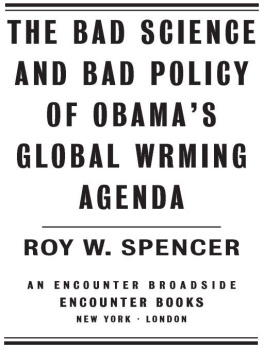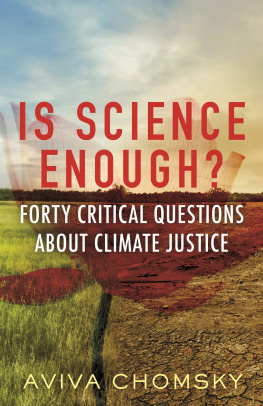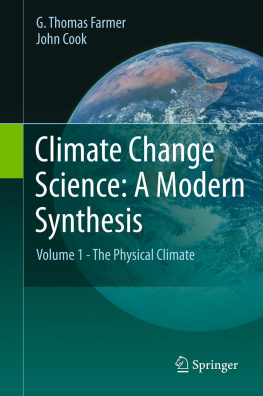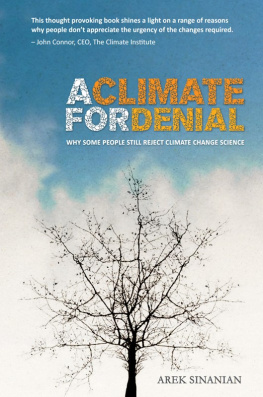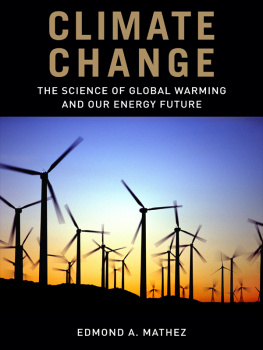


To Matthew, Sheril, Chris, Lawrence, Austin, Derek, and Darlene
And to children everywhere, who will live with our choices
C ONTENTS
PART I

AMERICAS SCIENCE PROBLEM
CHAPTER 1
L ET S H AVE A S CIENCE D EBATE

Now we are met on the great battlefield of a new civil war, and the greatest part of that battlefield is the global warming battle. Now I know that in American-speak you have a word for global warming. Can someone tell me what it is?
[Crowd: Bullshit!]
Now look here. Barack Hussein Obama has just flown over in Marine One and landed on the White House lawn. He is now hiding behind the drapes in the Oval Office. He cannot hear you. Global warming is?
[Crowd: Bullshit!]
Thats better. I think he heard that one.
L ORD C HRISTOPHER M ONCKTON, 2010
H OUSTON, W E H AVE A P ROBLEM
Whenever the people are well informed, Thomas Jefferson wrote, they can be trusted with their own government.the peoples will guide the affairs of men and women through the democratic process.
But today the invisible hand seems confused and indecisive. Congress seems paralyzed, unable to act on many key issues that increasingly threaten the economic and environmental vitality of the nation and the planet. Ideology and rhetoric increasingly guide policy discussion, often bearing little relationship to factual reality. And the America we once knew seems divided and angry, defiantly embracing unreason.
At the same time, science is exploding all around us. There is a phase change going on in the scientific revolution: a shifting from one state to another, as from a solid to a liquid. There is a sudden, quantitative expansion of the number of scientists and engineers around the globe, coupled with a sudden qualitative expansion of their ability to collaborate with each other over the Internet. These two changes are dramatically speeding up the process of discovery and the convergence of knowledge across once-separate fields, a process Harvard entomologist Edward O. Wilson calls consilience. We now have fields of inquiry where economics merges with environmental science, electrical engineering with neuroscience and physics, computer science with biology and genetics, and many more. This consilience is shedding new light on long-held assumptions about economics, the world we live in, and the nature of life itself.
Over the course of the next forty years, science is poised to create more knowledge than humans have created in all of recorded history. How that knowledge will impact life, and whether our society and our form of government will be able to withstand the rush, depends upon how we answer political questions we are currently struggling with. There is unfortunately no similar phase change going on in our politics, and therein lies the rub. Can we manage the new science revolution to our best advantage, or will we be its unwilling victims?
At the same time that we are being overwhelmed by progress, we are facing a host of legacy challenges from the science of the last century that are now being pushed to the forefront by global development. They include climate change and energy; ocean acidification and overfishing; biodiversity loss and habitat fragmentation; pandemics and biosecurity management; freshwater resource management; transportation; waste management; chemical, biological, nanotechnological, and genetic pollution; population control; national security; science education and economic competitiveness; and economic growth on a finite planet without degrading it.
Thanks to early science, we have prospered, but it has come at a cost. We now have a population that we cannot support without destroying our environmentand the developing world is just coming online using the same model of unsustainable development. We are 100 percent dependent on science to find ways to preserve our environment and support our population while maintaining health, wealth, freedom, and opportunity.
Between these two areasthe wild future that is rapidly emerging and the unresolved past we can no longer ignorescience is poised to whipsaw us in the coming decades like never before. This has the potential to produce even more intense social upheaval and political gridlock at the very time we can least afford them. We have within our grasp the potential to become the shining city upon a hill: vibrant, creative, and pristine, a beacon to all who love freedom. But we may also slip into decline, sliding day by day, almost without notice, into an environmental and economic morass, resentful and angry with each other over what we are losing, not realizing it is because of our own actions. For health and prosperity to continue, science can no longer be separated from policy making, religion, and economics. In this new age of connectivity, these four great houses of power must learn to work more closely together.
But can they?
T HE S ILENCE OF THE I NVISIBLE H AND
Science provides us with increasingly clear pictures of how to solve our great challenges, but policy makers are increasingly unwilling to pursue many of the remedies science presents. Instead, they take one of two routes: Deny the science, or pretend the problems dont exist. In fact, political and religious institutions the world over are experiencing a reactionary pull-back from science and reason that is threatening planetary stability and long-term viability at the very time we need science the most, and nowhere in the world is this pullback more pronounced than in the United States.
Can it be that science has simply advanced too far, or that our world has simply gotten too complex for democracy? In a world dominated by science that requires extensive education to practice or even fully grasp, can democracy still prosper, or will the invisible hand finally fall idle? Are Americans still well informed enough to be trusted with their own government?
Judging by Congress, the answer increasingly seems to be no. In an age when most major public policy challenges revolve around science, less than 2 percent of congresspersons have professional backgrounds in it. The membership of the 112th Congress, which ran from January 2011 to January 2013, included one physicist, one chemist, six engineers, and one microbiologist.
In contrast, how many representatives and senators do you suppose have law degreesand whom many suspect avoided college science classes like the plague? Two hundred twenty-two. Its little wonder we have more rhetoric than fact in our national policy making. Lawyers are trained to create a compelling narrative to win an argument, but as any trial lawyer will tell you, that argument uses facts selectively and only for the purposes of winning the argument, not for establishing the truth.
F EAR AND L OATHING ON THE C AMPAIGN T RAIL
The problem is even more pronounced in presidential politics. Consider climate change, arguably the greatest policy debate facing the planet. In late 2007, the League of Conservation Voters analyzed the questions asked of the then-candidates for president by five top prime-time TV journalistsCNNs Wolf Blitzer, ABCs George Stephanopoulos, MSNBCs But in a world increasingly dominated by complex science, these questionsand not whos wearing what lapel pinare what will determine our future.
Next page
